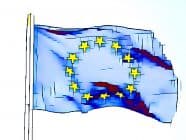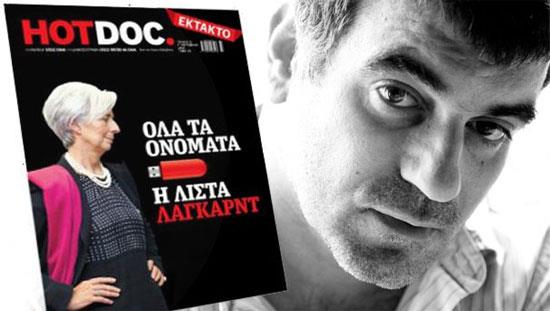Message, Nr. 4/2009
Several of Germany’s most popular bloggers recently devised an “Internet Manifesto,” a document of prescriptions for journalism in the digital age. Stephan Russ-Mohl responds to the bloggers’ manifesto with one of his own.
1. The Internet may be a different medium for journalism, but journalism hosted on the Internet is not necessarily free.
2. The Internet itself is not a media empire, but the media empires of the Internet (Google, Microsoft, etc.) are the new oligopolists.
3. Our society is not the Internet, and the Internet is not our society. The Internet is not “free of domination” as Habermas would prefer. Perhaps this explanation is more realistic: We are the market, thus the consumers are the citizens are the consumers.
4. As Rosa Luxemburg said, freedom is always the freedom of one who thinks differently. Thus, freedom in a society cannot be limitless, which is why the Internet needs at least a minimum of (ordo-liberal) regulation.
5. There is a fine line between the successes and failures of information on the Internet. One can easily become oversaturated with information.
6. The Internet is a new distribution channel through which interactivity is made easy, providing both risks and opportunities for journalism. Opportunities depend more on the willingness of users to pay than on the Internet as a technology.
7. The Net requires nothing, but networking is useful for users.
8. Links (many, but certainly not all) reward, citations (in particular those that identify sources) adorn.
9. The Internet is not the venue, but rather one venue for discourse – and not exclusively for political discourse, but rather for thousands of dialogues that garner political attention.
10. Without professional journalism, freedom of opinion deteriorates to blah blah blah.
11. Unchanneled information overload is as destructive to democracy and as harmful to society as lack of information.
12. “Zero cost” is not a business model for high quality journalism – neither offline nor online. Journalistic independence can only be assured by paying readers, listeners, viewers and users. He who pays the piper calls the tune.
13. Copyright is not yet respected sufficiently on the Internet. Theft remains theft – concerning intellectual property as well as Web content. The quality and value of information change when copied and multiplied. This is something every stag with insider information at the stock exchange knows, along with every advertiser or PR expert making a living from the multiplier effects of circulating messages.
14. Advertising is the major currency of today’s Internet. Fifty years ago, advertisers were the “secret persuaders.” Now we expect them to save both journalism and democracy because citizens are unwilling to pay the price of a daily macchiato for reliable journalism. The “free/not for free” controversy is bullheaded and ideological. Precisely because excellent journalism is of value, it should cost something– however, it should cost less online as paper, print and distribution are expensive.
15. The future is open. No one can say whether what’s on the Net will stay on the Net. Correcting errors and creating transparency is part of journalistic professionalism – online as well as offline. Unfortunately, many journalists are still disavowing this.
16. The Internet debunks nothing. The brand of enlightening journalism that reduces spin, uncovers scandals and contains corruption is costly and requires large, capable labor-sharing newsrooms. As of now, this cannot be financed online. Demands for improved quality won’t help if they are not paired with an increased willingness to pay.
17. “All for all”… this is pure populism. The “Wikipedia generation” is often surprisingly naive, not only with regard to the blind trust awarded to unchecked sources. Media pedagogics – instructing middle and high schoolers on media usage –is more important than ever. However, it also requires a new generation of teachers with the necessary media competencies.
Tags: Bloggers, Copyright, German, Internet, Manifesto, New media














































